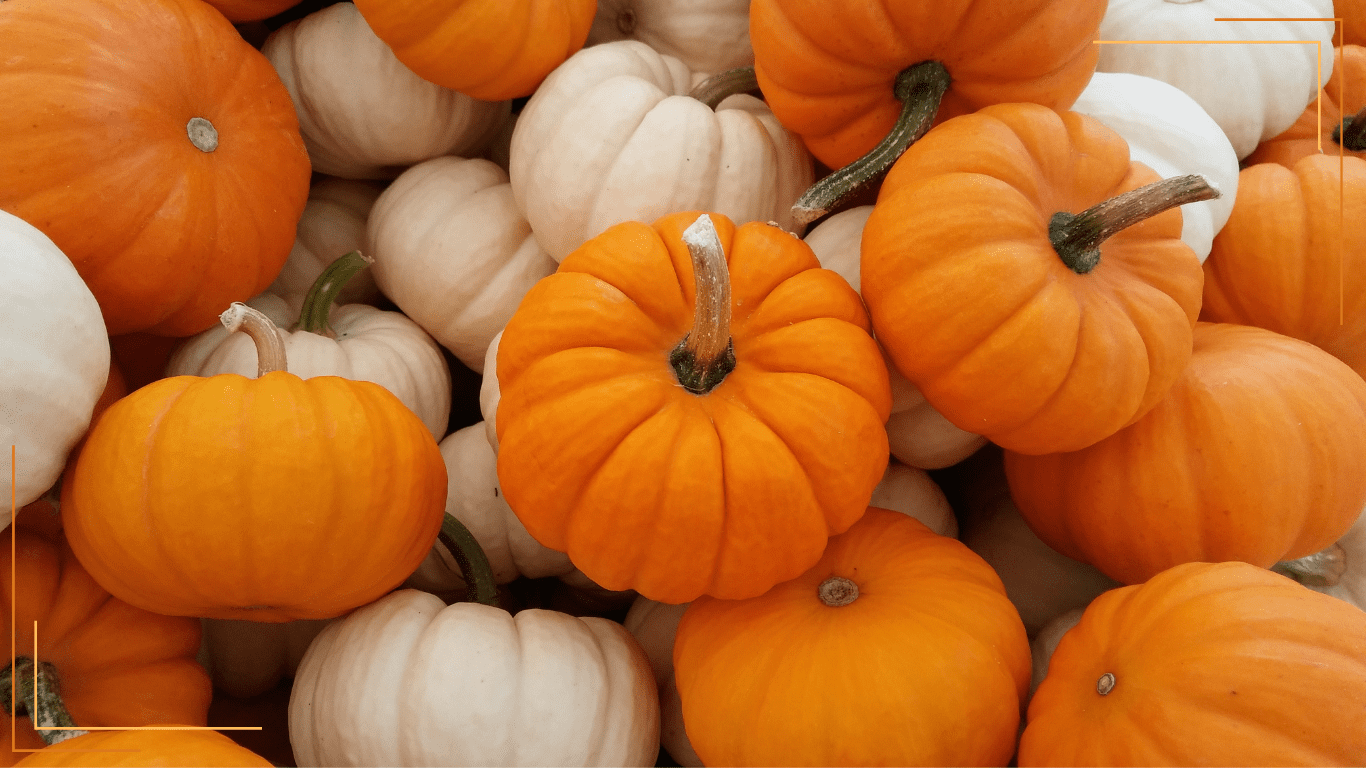Harvesting Health This Fall
As a crisp air and colorful leaves of fall begin to fill our days, it’s time to turn our attention to seasonal foods that nourish our bodies from inside out. Pumpkin is a one of the most iconic fall superfoods-a nutritional powerhouse that not only embodies the flavors of fall but also offers a wide range of health benefits. As a health and wellness coach , I’m excited to share with you the benefits of pumpkin and how easily incorporate this nutrient rich food into your diet to support your overall wellness this fall season.
Nutritional Power of Pumpkin Pumpkin is packed with variety of vitamins and minerals that make it a nutritious addition to your diet . The key vitamins and minerals found in pumpkin:
Vitamin A (Beta-carotine) Pumpkin is extremely high in beta-carotene , which the body converts into vitamin A. This vitamin is essential for maintaining various aspects of overall health. Some key benefits are eye health , immune system support and skin health.
Vitamin C This antioxidant-rich vitamin helps boost immune system, promotes skin health, and aids in the absorption of iron.
Vitamin E Known for its antioxidant properties, vitamin E supports skin health and helps protect cells from oxidative damage.
Vitamin B2 ( Riboflavin) Riboflavin plays key role in energy production and maintaining healthy skin and eyes.
Folate Folate is necessary for maintaining good health throughout your life supports healthy cell function.
Potassium Pumpkin is a great source of potassium, which helps regulate blood pressure, balance fluids in the body, and support heart health.
Magnesium This mineral is essential for muscle and nerve function, bone health, and regulating blood sugar levels
Zinc Pumpkin seeds are a rich source of zinc, which supports a wide range of body functions—from immune health and wound healing to cognitive development and skin health.
Iron Pumpkin contains iron, which is necessary for producing hemoglobin and supporting oxygen transport in the body.
Manganese Manganese plays a role in bone formation, blood clotting, and reducing inflammation.
Copper Copper is important for iron absorption and the formation of red blood cells, as well as supporting the immune system
Pumpkin is also a great source of fiber which supports digestive health and healthy gut microbiome. Including pumpkin in your diet can help keep your digestive system functioning smoothly and support weight management.
How to incorporate Pumpkin into Your Fall Diet
Whether you’re looking for savory or sweet, pumpkin’s versatility makes it the perfect addition to many dishes
Pumpkin Smoothies Add a nutrient boost to your morning routine by blending pumpkin puree with almond milk, banana, a spoonful of almond butter, and a dash of cinnamon and nutmeg. You’ll have a creamy, delicious fall-flavored smoothie packed with fiber, vitamins, and minerals.
Pumpkin Oatmeal Stir some pumpkin puree into your morning oatmeal for autumn inspired breakfast. Top it with chopped nuts, seeds, and a drizzle of maple syrup for a hearty, fiber-packed meal that will keep you satisfied.
Roasted Pumpkin Seeds Pumpkin seeds are excellent source of healthy fats, protein, magnesium, and zinc. Roast them with sprinkle of sea salt or your favorite spices for a crunchy, nutritious snack that’s easy and great and for on -the-go.
Pumpkin in Salads For a unique twist on your salads, add roasted pumpkin seeds. Toss them with mixed greens(arugula, spinach), goat cheese, walnuts, cooked quinoa, pear or apple, and a balsamic vinaigrette for a nutrient- dense salad bursting with fall flavors
Pumpkin Soup A warm bowl of pumpkin soap is the perfect comfort food for chilly fall evenings. Blend roasted pumpkin with vegetable broth, carrots, garlic, onions, and a pinch of turmeric or ginger for an antioxidant-rich soup that’s both soothing and nourishing.
Pumpkin in Baked Goods Pumpkin’s natural sweetness makes it a great ingredient for healthier baked goods. You can use pumpkin puree in muffins, pancakes, cookies as a way to cut down on sugar while still adding moisture and flavor.
As a health coach, I encourage you to eat seasonally whenever possible. Seasonal foods are often fresher and nutrient-dense. Pumpkins are in their prime during the fall season, making them a perfect food to incorporate into your meals.
I am not a licensed medical professional, and the information provided on this website is for educational and informational purposes only. It is not intended as a substitute for professional medical advice, diagnosis, or treatment. Always seek the advice of your physician or other qualified healthcare provider with any questions you may have regarding a medical condition. Never disregard professional medical advice or delay in seeking it because of something you have read on this website.
